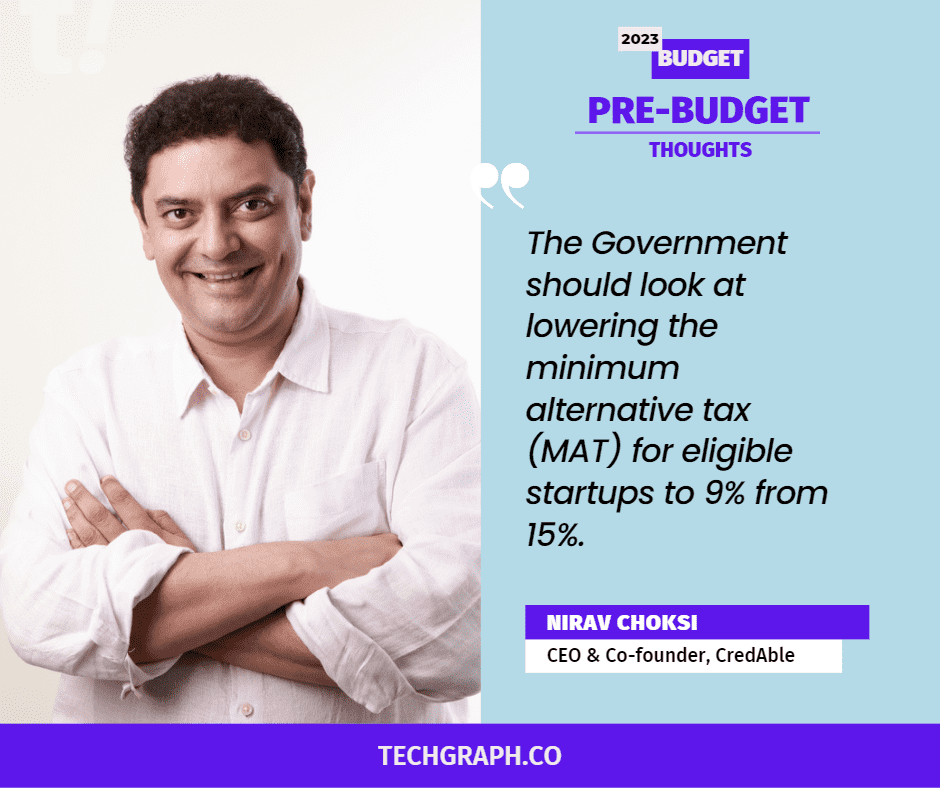As the Union Finance Minister Nirmala Sitharaman, is all set to present the Indian Budget for 2023-24, we reached out to Nirav Choksi, CEO & Co-founder at CredAble to understand what startups are expecting from the upcoming budget.
In his comments about the Union Budget 2023-24, Nirav Choksi, CEO, Co-founder at CredAble said, “Union Budget 2022 was a milestone digital budget as a series of industry-first reforms were introduced to accelerate India’s digital revolution. The upcoming budget will be crucial in defining the way forward for the Indian economy. We’re positive that policy changes that will drive continuous growth are in order.”
“We will need to view the budget from the larger macroeconomic perspective of fiscal discipline. That said, we are hoping to see some reforms aimed at spurring the economy such as CAPEX outlays in areas like infrastructure, education, healthcare, and agriculture,” Choksi said.
Continuing with his expectations, Choski said, “From bringing forth multiple disruptive inventions to the market to job creation across the country, the startup ecosystem is a crucial part of the Indian economy. They are expected to contribute close to 4-5% to India’s GDP in the next three to five years. Today, we see a measured approach to funding with investors warming up to emerging sectors. With all this in the background, 2023 is undoubtedly going to be an exciting year for startups in the country.”

“We look forward to a comprehensive set of measures to further solidify India’s startup sector such as the deferment of the time of tax payment on Employee Stock Option Plans (ESOPs). Additionally, the government should look at lowering the minimum alternative tax (MAT) for eligible startups to 9% from 15%.”
Further adding to this, Choksi said, “Actionable plans for the promotion of ease of doing business for startups should be introduced. To help startups save time and money, a single window for all relevant registrations such as company incorporation and GST certification should be in place. Owing to the funding winter, this year we are likely to see more consolidations in the startup space.”
“As a result, such outbound mergers of startups should be authorized on a tax-neutral basis. Measures to have taxes imposed only on actual liquidation and not on restructuring should be introduced. We also look forward to digitization initiatives and support measures that will boost India’s manufacturing ambitions and strengthen our position in the global economy,” Choski continued.




